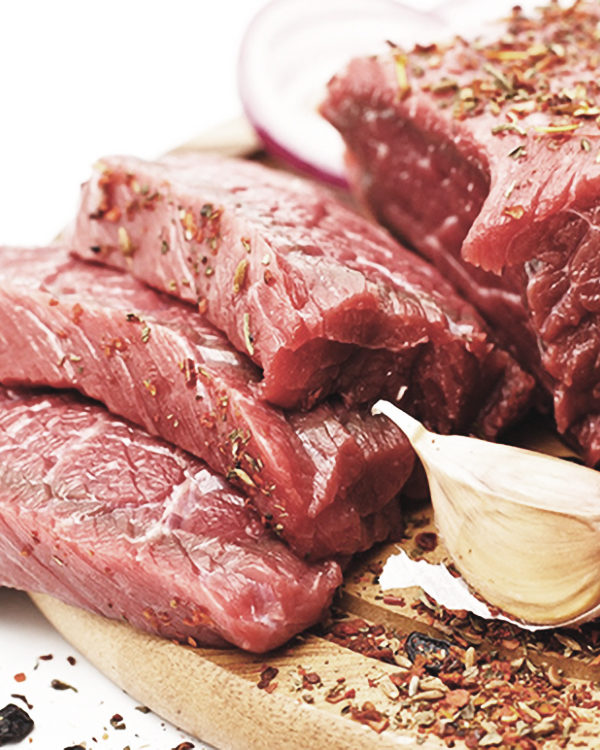Editors Note: This is a guest post from Olympic Athlete Michael Blackburn, BAppSci (Hons), PhD (Sports Science).
I’m writing this because too many times I’ve heard from athletes that ‘sugar is bad’ or ‘sugar makes me fat’. So I wanted to talk about some facts regarding the benefits of carbohydrates/sugars in an athlete’s diet.
With so many messages about diets in the general media it’s important for athletes to remember that they need an eating plan that provides high quality energy for training and competition, rather than follow diet fads of the general population.
Firstly, some important background.
There are 3 primary energy sources for the body – carbohydrates, fat, protein. Note the energy (kilojoules) in each gram of these macronutrients:
Carbohydrate -16 kj/gram
Fat – 37 kj/gram
Protein – 17 kj/gram
(Alcohol – 29 kj/gram)
(1 calorie = 4.18 kilojoules)
So you’ll take in about the same energy when you eat 2 grams of a pure carbohydrate food as 1 gram of fat.
To gain weight, the total energy obtained from food should be greater than energy expended. Conversely, to loose weight, the balance between intake and expenditure will be negative. It’s just maths.
There are some tricks, of course.
Typically, carbohydrate foods are more easily digested and somewhat less satisfying that fatty foods, hence the ease with which we can consume excessive amounts of carbohydrates and blame them for getting fat. Also for every gram of carbohydrate stored, 3 grams of water are needed. This adds weight, but is useful during training to maintain hydration.
An alternative route to the thinking that carbohydrates are bad is the ‘hidden’ fat that often accompanies meals seen as ‘carbohydrates’. For instance, on the surface a pasta meal is primarily carbohydrate and therefore relatively energy sparse. However, the addition of oil, sauces or other ingredients can easily skew the ratio of the macronutrients toward the fatty end and provide an abundance of kilojoules… and fat on the hips. Remember, energy balance and the gaining or loosing of weight is just maths.
What and Where: Carbohydrates for Athletes
Total carbohydrates are made up of simple sugars, complex carbohydrates, and fibre.
Simple carbohydrates are commonly known as sugars. Sources of simple carbohydrates include sugar, lollies/candies, soft drinks/sodas and bakery goods. These foods are low on vitamins and minerals and it’s usually best to only eat them just after training or competition, when the body is starving for quick carbohydrates (those with a high Glycemic Index ).
Complex carbohydrates include all the complex starches and fibre, such as those found in grains, cereals, breads and starchy vegetables like potatoes, corn, peas and beans. Milk, fruit and vegetables also contain some carbohydrate.
Complex carbohydrates contain many essential nutrients and are the body’s most effective source of fuel to the athlete. Complex carbohydrates are ideal because they are rapidly digested and absorbed into the bloodstream.
Carbohydrates should make up the largest portion of the athlete’s diet. Research suggests that to maintain adequate carbohydrate stores during heavy training, carbohydrate intake should be 7-10 grams/kg of body weight/day or 55-70% of energy from carbohydrate.
Endurance athletes who train heavily on successive days, or who compete in very long endurance events, would benefit from a diet that has 65% – 70% of total kilojoules from carbohydrates. Sprinters, weight lifters and other power and sprint athletes can train effectively on slightly less carbohydrates (and more protein).
Fat intake for athletes, as well as healthy adults, should comprise less than 30% of total calories. Protein intake should be about 15% – 20% of daily kilojoules (and a little more for strength and power athletes).
These days, many food labels carry the macronutrient ratio (carbs-fats-protein) to help you make informed choices (eg, 55:25:20).
Why Carbohydrates are Great for the Athlete
There are two main facts why carbohydrates are so important for athletes:
- The brain runs exclusively on sugar.
- The muscles’ preferred source of energy is sugar.
And if you need more evidence, consider these quotes from sports nutrition books, journals and websites:
- In short-burst, high-intensity events such as sprinting, jumping and pole vaulting, carbohydrates provide 100 percent of energy (www.pioneerthinking.com).
- Carbohydrates are the body’s favorite fuel (www.healthcastle.com).
- Carbohydrates spare muscle from being broken down as an energy source (Eating on the Run ).
- The time to exhaustion during endurance exercise is directly related to the initial levels of stored glycogen (carbohydrates) in the muscles (Practical Applications in Sports Nutrition ).
- Sugar is a carbohydrate that fuels, not poisons, the muscles (Nancy Clark’s Sports Nutrition Guidebook ).
- Adding more carbs to a generally healthy diet should boost immunity as well as athletic performance.
- Consuming 30-60 g carbohydrate? per hour during sustained intensive exercise attenuates rises in stress hormones such as cortisol and appears to limit the degree of exercise-induced immune depression (Journal of Sports Sciences ).
- Time to exhaustion during cycling at 70% effort was 32% longer in a group that took in carbohydrates during exercise compared with a group that did not (Journal of Applied Physiology ).
So there you have it – don’t be afraid of carbohydrates – they’re on your side!
Obviously, this post is heavily biased towards carbohydrates. Athletes also need fat and protein to fulfil total nutrient requirements and follow a sound nutrition plan to support their training. If you’ve like to find out exactly what’s in the foods you eat check out Nutrition Data
Post by Michael Blackburn, BAppSci (Hons), PhD (Sports Science). Michael has won two World Titles, competed in three Olympics in Sailing (winning a Bronze medal) and coached at a fourth (2008).





Recent Comments